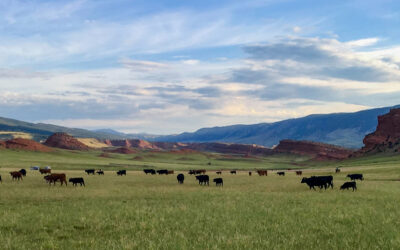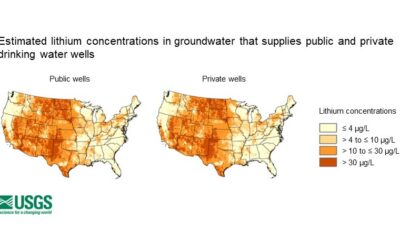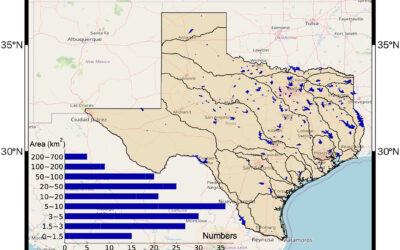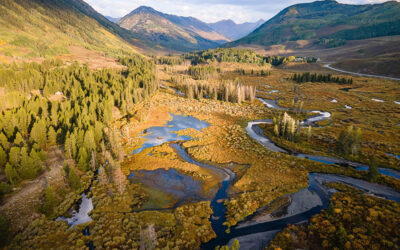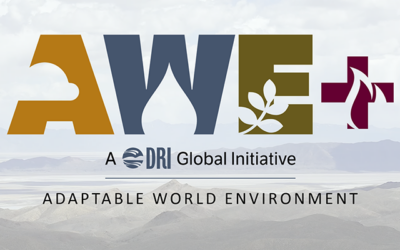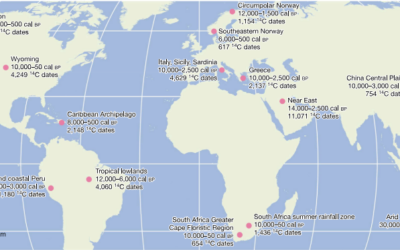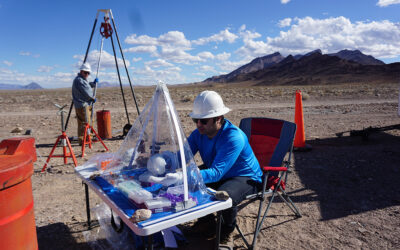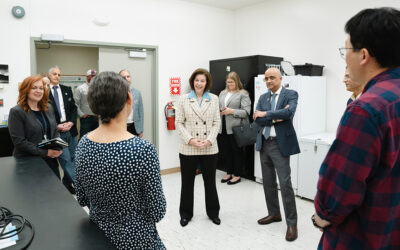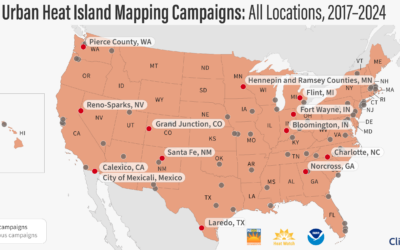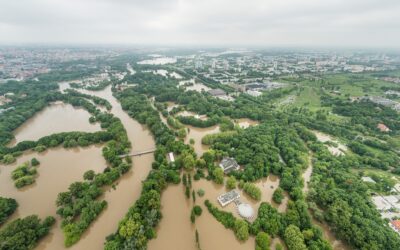News & Announcements
Working to Solve our Most Challenging Environmental Problems
DRI’s research calls on the expertise and methods of scientists from multiple scientific disciplines. More than 600 highly-skilled scientists, engineers, technicians, students, and staff work collaboratively within and across three research divisions, focused on understanding and answering critical science questions about global climate change, water quality and availability, air quality, the sustainability of desert lands, life in extreme environments, education, and more.
Western Agricultural Communities Need Water Conservation Strategies to Adapt to Future Shortages
Relying on water storage won’t be enough to make up for declines in future water availability under a changing climate, new study shows. Beatrice Gordon, lead author of the study and sociohydrologist and postdoctoral researcher at DRI, says the research is needed to inform water management at the local level, where most decisions are made.
New Study Estimates Lithium in Groundwater That Can Be Used for Drinking Water
DRI researchers Monica Arienzo and Daniel Saftner are coauthors on a new study led by the USGS that examines lithium levels in groundwater aquifers used to supply drinking water across the U.S. The new estimates can help health researchers determine potential connections between lithium exposure and human health outcomes.
Every Drop Counts: New Algorithm Tracks Texas’s Daily Reservoir Evaporation Rates
A recent collaboration between DRI and Texas A&M University researchers provides state of the art, real-time evaporation estimates for improved management of water supply reservoirs throughout Texas.
Graduate Student Winners of the Annual Poster Presentation Session
On Friday, April 26th, 16 graduate students presented their research at DRI’s Reno campus for the annual poster presentation session. Organized by Kathleen Rodrigues, PhD, assistant research professor of luminescence, the poster session offers an opportunity for DRI-affiliated graduate students to network with each other and with DRI faculty, hone their presentation skills, and showcase the research they’re working on in pursuit of their degrees.
Rising Temperatures Will Significantly Reduce Streamflow in the Upper Colorado River Basin As Groundwater Levels Fall, New Research Shows
Climate change will dramatically impact streamflow and its contributions to the Colorado River by increasing forest water use and reducing groundwater levels, new study finds.
DRI to Host AWE+ Wildfire Summit
The AWE+ initiative will promote an Adaptable World Environment of strong, resilient communities in a climate shifting world. AWE+ 2024 – Wildfire Recovery and Resilience: Working Across Silos to Drive Solutions – is a global call-to-action for communities to implement measures that support resilience and human adaptability to devastating wildfire events. The event will be held at Encore Las Vegas from August 21-23, 2024.
Frequent Disturbances Increased the Resilience of Past Human Populations
DRI’s Erick Robinson, Ph.D., associate research professor of climate and archaeology, is co-author on a ground-breaking new study. The research, published May 1st in Nature, is the first global-scale comparison of human resilience to environmental and cultural disturbances over millennia.
New Method Reveals Hidden Activity of Life Below Ground
DRI’s Duane Moser, Ali Saidi-Mehrabad, and Molly Devlin co-authored a new study that examines the genetics and life strategies of microbes living deep below Earth’s surface. Dr. Moser and his lab conducted the fieldwork for the research as part of their work studying deep wells located in the Death Valley regional flow system.
In Reno, Cortez Masto Highlights $9.2 Million She Secured To Support Nevada’s Clean Energy Boom, STEM Education, And Workforce Development Initiatives At DRI
U.S. Senator Catherine Cortez Masto visited DRI for a tour of their upgraded facilities to highlight over $9.2 million in investments she secured through recently passed bipartisan legislation to support DRI’s critical research projects that are helping grow Nevada’s clean energy economy, protect the environment, and preparing students for careers in STEM fields.
Reno/Sparks selected to be part of Urban Heat Mapping Campaign
Several municipal, county, and Tribal governments and community groups based in the Reno-Sparks area are teaming up to map the hottest parts of Reno, Sparks, and adjacent portions of Washoe County.
DRI’s Christine Albano Co-authors Groundbreaking New Research in Groundwater’s Role in Ecosystem Sustainability
A new study published in Nature Water used satellite data spanning 38 years to examine how groundwater-dependent ecosystems (such as wetlands, meadows, and springs) in California respond to fluctuations in groundwater levels. The research can help shed light on how water management practices can best account for ecosystem needs in addition to those of human society.
A Fresh Look at the Drivers of Extreme Flooding
A new study in Science Advances finds that compounding effects of flood drivers can complicate and exacerbate the risk of extreme floods in watersheds around the world. DRI’s Guo Yu, Ph.D., assistant research professor of hydrometeorology, co-authored the research.
